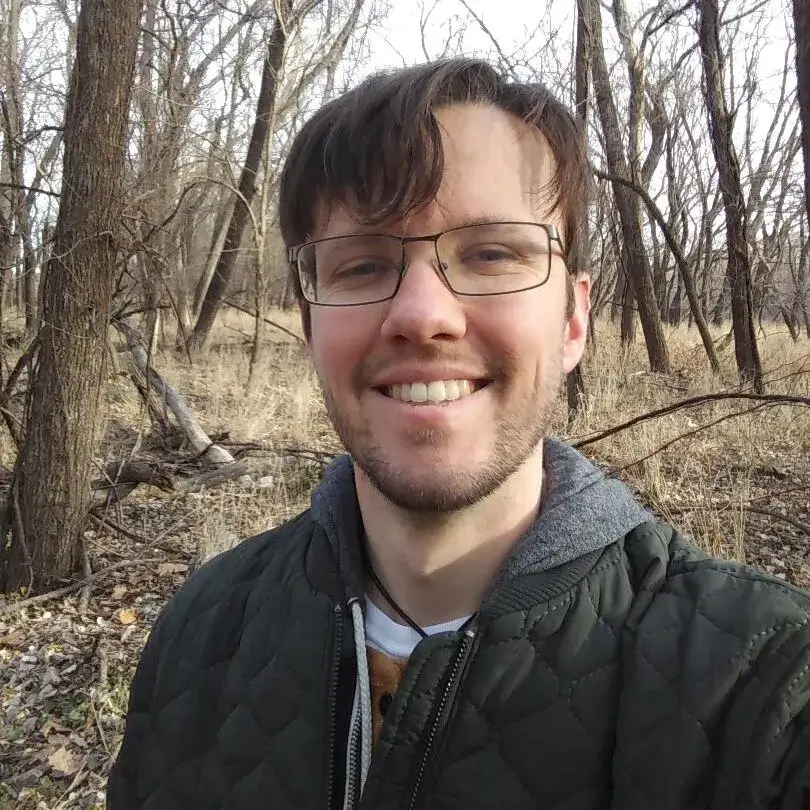Lawrence man claims evidence submitted by prosecutor was manipulated to create crime
LAWRENCE – Last week, Michael Eravi, an advocate against government corruption in Douglas County, Kansas posted a video to his YouTube channel Lawrence Accountability that he says was audio evidence of a phone call to 911 that had been digitally edited before given to the defendant (him) in Discovery. The audio, he says, was cut up and put back together in an order that would make it seem as if he had committed a crime.
The audio was provided as evidence submitted by city attorney Elizabeth Hafoka during Discovery for Municipal Case Number: 2023-CR-694.
In Eravi’s video, he puts both the alleged edited audio first and shares the alleged original audio second so that viewers can hear the difference. In the original audio (starting at 9:17) the audio file begins with the standard dispatch operator saying “dispatch” followed by a “Hi, this is…” the audio cuts out when the name is provided before returning to request police to come out to the city support site. We do know the first name of the caller is Cari. This seems like a standard way to start a phone call, especially to police, however this is not how the alleged edited audio began. In fact, we don’t even hear this portion of the 911 call in the audio provided as evidence until the 7:40 mark, making it the last segment we hear of the alleged edited audio. Instead, it starts with Cari stating that Eravi has a firearm as seen by another person.
Eravi claims that the identification of his firearm was actually the end of the 911 call. This appears to highlight the fact that Eravi was constitutionally armed and possibly trying to make it seem as if he was a threat, despite Cari’s calm voice. This portion of the audio seems even more evident to be the end of the audio as the dispatcher and Cari tell each other a form of “goodbye” a minute and 24 seconds into the clip before the audio continues with the dispatcher asking Cari if Eravi was “doing anything.”
Eravi states that this was the fourth piece in the chronological order out of the five cut pieces. He also states that this portion comes just after Cari claimed he was yelling, something Eravi denies, stating it was another man known as “DJ.” Eravi provides video evidence in the clip where he is sitting, filming himself as another man can be heard yelling off camera. However, this appears to build the narrative that he was creating a disturbance.
From here, the alleged digitally edited audio goes silent for just over a minute starting at 2:09 and coming back in at 3:11 where Cari states that Eravi is sitting at the picnic tables beside the shipping container office.
“So, when the officers approach, he’ll be right there at the picnic table area,” Cari can be heard saying in the audio.
Eravi says this third segment was actually the second segment in real time. The alleged edited audio goes silent again from 3:24 to 3:59, before the dispatcher cuts back in telling Cari to keep him updated. This fourth segment, according to Eravi, is actually the second segment in real time. However, it appears to create a narrative that Eravi began to calm down only prior to police arriving.
“In reality, there was no disturbance,” Eravi wrote in the video description box.
Around the 6:40 mark of the alleged edited audio, yelling can be heard. The dispatcher asks if that is Eravi yelling, to which Cari confirms. However, Eravi claims this again was DJ who was yelling.
“Suddenly I am a disturbance and then she makes me a threat by making something out of a constitutional right expressed responsibly,” Eravi’s video description box detailed.
This is in reference to Cari stating that Eravi “normally carries” in response to the dispatcher’s question of whether Eravi had “any weapons.” Remember, this would not make any sense to ask if the first thing that Cari confirms with the dispatcher is that Eravi has a firearm as the dispatcher would already know this information.
There also seems to be a question of whether some audio evidence from the 911 call that was submitted was deleted.
This whole issue comes with a lot of questions. Specifically, who would have edited the audio evidence that Hafoka submitted and why? If it is confirmed to be tampered with, who is going to be looking into this? Did Hafoka knowingly submit tampered evidence, and if so, what would happen to her as a city attorney? And is anything currently being done regarding this issue?
We reached out to City Attorney Toni Wheeler for answers, however, he is out of the office and has not replied. Nevertheless, we also reached out to Lawrence Police Chief Rich Lockhart, District Attorney Suzanne Valdez, and City Manager Craig Owens. None of them have responded by the time of this publishing.
It should be noted that the city of Lawrence seems to have a special grudge against Eravi due to his advocacy exposing the local government’s corruption, especially the Lawrence Police.
Also, the video thumbnail shows an email Eravi appears to have written to Hafoka where he requests the “complete and unedited 911 call” after stating that it is “painfully obvious” that the 911 call was “amateurishly clipped apart and pieced back together out of order.”
He also stated in the email that it seems to have been done with “intent to escalate the unreasonable criminalization” of his “free exercise of the second amendment.” He also states in the email that there is “zero likelihood of it being an accident” and gives the question, “Is the LPD seriously resorting to manufacture evidence against me?”
Eravi also states in his email to Hafoka, “This evidence, if introduced, would be quite embarrassing if I have to impune both the authenticity and chain of custody, while showing again the clear attempt to manipulate the criminal justice system against a single lawful individual.”
Thanks for reading. Be sure to share and subscribe. You can also help support independent journalism in Kansas by buying me a coffee at buymeacoffee.com/kscon.

Ian Brannan
Ian Brannan is an independent journalist who founded The Kansas Constitutional in April 2022. His work focuses on issues including abortion, Convention of States, drug policy, education, government, LGBT issues, media, and more. He is also the co-host of the Remember COVID podcast.

